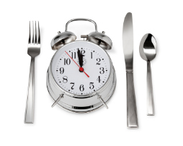
Business, Employment, Transportation: April 17, 2013
Meal and Rest Breaks: The One-Year Anniversary of the Brinker Decision By Ron Chauvel
We just recently passed the one-year anniversary of the California Supreme Court’s decision in Brinker Restaurant Corp. v. Superior Court.
The Brinker case was of critical significance to all California employers. The court ruled that employers do not have to “ensure” that employees take their meal and rest breaks, but must merely provide employees with the “opportunity” to take such breaks. The court’s ruling also provided flexibility to employers with regard to the timing of meal and rest breaks.
In the year since Brinker was decided, meal and rest break claims have not disappeared in California. However, such claims are, more difficult to substantiate and get certified as class action lawsuits, especially when the employer has clear policies and practices and a good timekeeping system.
One lesson from Brinker is that employers need to develop clear written policies advising employees of when meal and rest breaks must be taken. And, employers need to make sure that employees have the “opportunity” to take such legally required breaks. Employers need to schedule work shifts in a manner that does not prevent employees from having the ability to take required breaks.
The transportation industry provides an excellent example of how the meal and rest break laws may be applied. Truck, bus and other commercial drivers are usually on the road. Thus, their employers are hard-pressed to know whether the required breaks are being taken. However, such employers should be safe under Brinker if they have written policies setting forth the meal and rest break requirements and advise their employees of the need to take such breaks.
Likewise, when scheduling truck, bus or other transportation movements, employers should make sure there is enough time built in for the drivers to take their required breaks. If there is not, then a case could be made that the transportation employer has violated the meal and rest break laws.
Significantly, there are now several cases before the Ninth Circuit Court which, depending on the result, would prohibit California from applying its meal and rest break requirements to drivers and possibly others.
Meal and Rest Breaks: The One-Year Anniversary of the Brinker Decision By Ron Chauvel
We just recently passed the one-year anniversary of the California Supreme Court’s decision in Brinker Restaurant Corp. v. Superior Court.
The Brinker case was of critical significance to all California employers. The court ruled that employers do not have to “ensure” that employees take their meal and rest breaks, but must merely provide employees with the “opportunity” to take such breaks. The court’s ruling also provided flexibility to employers with regard to the timing of meal and rest breaks.
In the year since Brinker was decided, meal and rest break claims have not disappeared in California. However, such claims are, more difficult to substantiate and get certified as class action lawsuits, especially when the employer has clear policies and practices and a good timekeeping system.
One lesson from Brinker is that employers need to develop clear written policies advising employees of when meal and rest breaks must be taken. And, employers need to make sure that employees have the “opportunity” to take such legally required breaks. Employers need to schedule work shifts in a manner that does not prevent employees from having the ability to take required breaks.
The transportation industry provides an excellent example of how the meal and rest break laws may be applied. Truck, bus and other commercial drivers are usually on the road. Thus, their employers are hard-pressed to know whether the required breaks are being taken. However, such employers should be safe under Brinker if they have written policies setting forth the meal and rest break requirements and advise their employees of the need to take such breaks.
Likewise, when scheduling truck, bus or other transportation movements, employers should make sure there is enough time built in for the drivers to take their required breaks. If there is not, then a case could be made that the transportation employer has violated the meal and rest break laws.
Significantly, there are now several cases before the Ninth Circuit Court which, depending on the result, would prohibit California from applying its meal and rest break requirements to drivers and possibly others.
